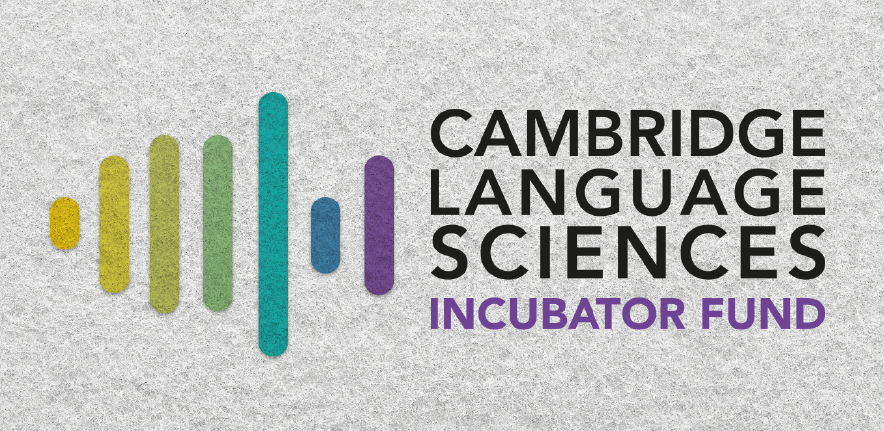
Submitted by Jane Durkin on Thu, 24/03/2022 - 15:50
We are delighted to announce that three new projects have been awarded seed funding through the Language Sciences Incubator Fund.
The successful applicants from the latest call, which closed in January 2022, were announced on 23 March.
We would like to congratulate all concerned, and to thank the reviewers for generously giving up their time to evaluate the proposals. Many thanks also to the Isaac Newton Trust who provided the matched funding for this round.
Posters on the funded research will be presented at future Cambridge Language Sciences Symposium events and we hope to feature more information about these projects on the Language Sciences website in due course.
Generalising Native Language Articulation to Non-Native Contexts: A Benchmark and Evaluation Framework
Dr Calbert Graham (Theoretical & Applied Linguistics), Konstantinos Voudouris (Department of Psychology & Student Fellow at the Leverhulme Centre for the Future of Intelligence), Dr Yasuaki Shinohara (Faculty of Science & Engineering, Waseda University, Japan)
Virtual assistants can recognise human speech in a variety of contexts and languages, but recognition rates of non-native speech are generally poor. The goal of this project is to apply an approach called out-of-distribution testing to develop a benchmark that can measure progress in automatic speech recognition towards architectures that can generalise from native to non-native speech. The aim will be to develop this benchmark initially for a small range of English varieties and phonetic parameters.
Predicting and mitigating contract clause conflict using AI
Dr Felix Steffek (Faculty of Law), Dr Ahmed Izzidien (Psychometric Centre), Dr Rune Nyrup (Leverhulme Centre for the Future of Intelligence), Holli Sargeant (Faculty of Law)
The team will carry out preparatory work for a large-scale funding application on the automatic identification of potential conflicts in legal contracts. Current methods on contract analysis and dispute resolution often focus on resolving the problem after it has occurred. The aim is to use Machine Learning and Natural Language Processing to predict and avoid such conflict.
Flexible processing in multilingualism: The case of innovative denominal verbs
Dr Margreet Vogelzang (Theoretical & Applied Linguistics), Prof. Ianthi Tsimpli (Theoretical & Applied Linguistics), Prof Robyn Carston (Division of Psychology & Lang Sciences, UCL)
The team will investigate lexical innovation and cognitive flexibility, drawing together perspectives from pragmatics, psycholinguistics, neurolinguistics, and research on multilingualism. The project aims to address the following research questions:
- How do monolingual adults process denominal verbs?
- Does the processing of denominal verbs relate to an individual's cognitive flexibility?
- Do multilinguals show an advantage when processing denominal verbs compared to monolinguals?
- If so, is this advantage related to their enhanced cognitive flexibility?
About the Incubator Fund
The Incubator Fund was established by Cambridge Language Sciences with additional funding from the Isaac Newton Trust, Cambridge University Press & Assessment, and the School of Technology, and is a small grants fund designed to foster innovative interdisciplinary research in the language sciences.
Since the Incubator Fund was established in 2016, over £100,000 of seed funding has been awarded across 37 projects. As well as the opportunity to develop new ideas, collaborations and approaches, Incubator Fund projects can provide proof of concept or evidence of collaboration for larger grant applications. Other positive outcomes include knowledge exchange studentships, publications, fellowships and further career opportunities for researchers involved.
We hope to open the next call for proposals in June 2022.
Please visit the Incubator Fund page for more information and to see a full list of Language Sciences Incubator Fund projects.
